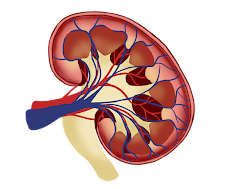What is Creatine?
Creatine is a naturally occurring compound found primarily in the muscles, with smaller amounts in the brain. It is synthesized in the liver, kidneys, and pancreas from the amino acids arginine, glycine, and methionine. Creatine can also be obtained through dietary sources, such as meat and fish.
The primary function of creatine is to supply energy to the muscles during high-intensity activities, such as weightlifting or sprinting. Creatine is converted into creatine phosphate in the body, which in turn is used to replenish adenosine triphosphate (ATP) – the primary energy currency in cells.
How Does Creatine Work?
Creatine works by increasing the availability of phosphocreatine (PCr) in muscle cells, which is used to regenerate ATP during short, intense bursts of activity. When the body's ATP stores are depleted, it relies on PCr to rapidly replenish ATP and maintain energy levels. By increasing PCr levels, creatine supplementation can help improve performance during high-intensity exercise by reducing fatigue and enhancing muscle strength and power.
How Might Creatine Raise Blood Pressure?
The relationship between creatine supplementation and blood pressure has been the subject of several scientific studies, with mixed results. Some research suggests that creatine may cause a slight increase in blood pressure, while other studies have found no significant changes. The discrepancy in findings may be attributed to differences in study design, participant characteristics, and the duration and dosage of creatine supplementation.
One proposed mechanism for creatine's potential impact on blood pressure is through its osmotic effect, which can lead to increased water retention in the body. Increased water retention could potentially result in a higher blood volume, subsequently increasing blood pressure. However, this effect appears to be mild and transient, with blood pressure usually returning to baseline levels after a few weeks of supplementation.
One of the well-known effects of creatine supplementation is increased water retention within muscle cells. This phenomenon is due to creatine's osmotic properties, which cause water to be drawn into the cells. The increased intracellular water content can lead to an increase in muscle size, known as "cell volumization," and may contribute to the muscle-building effects of creatine.
While water retention within muscle cells is generally considered a positive effect of creatine supplementation, it has also been suggested as a potential cause for the slight increase in blood pressure observed in some studies.
Creatine's potential impact on blood pressure may be influenced by individual factors, such as age, pre-existing hypertension, and kidney function. Therefore, it is crucial to consult with a healthcare professional before starting creatine supplementation, especially for individuals with pre-existing health conditions.
Creatine and Kidney Function
Concerns have been raised regarding the potential effects of creatine supplementation on kidney function, as creatine is broken down into creatinine – a waste product eliminated by the kidneys. High levels of creatinine in the blood can be an indicator of reduced kidney function. However, most studies conducted on healthy individuals have not found any significant adverse effects on kidney function with creatine supplementation within recommended dosages.
However, these findings are based on healthy individuals, and there is limited research on the effects of creatine supplementation in individuals with pre-existing kidney disease. For those with kidney disease or impaired kidney function, creatine supplementation may potentially exacerbate their condition. Therefore, it is crucial to consult with a healthcare professional before starting creatine supplementation if you have any concerns about your kidney function.


